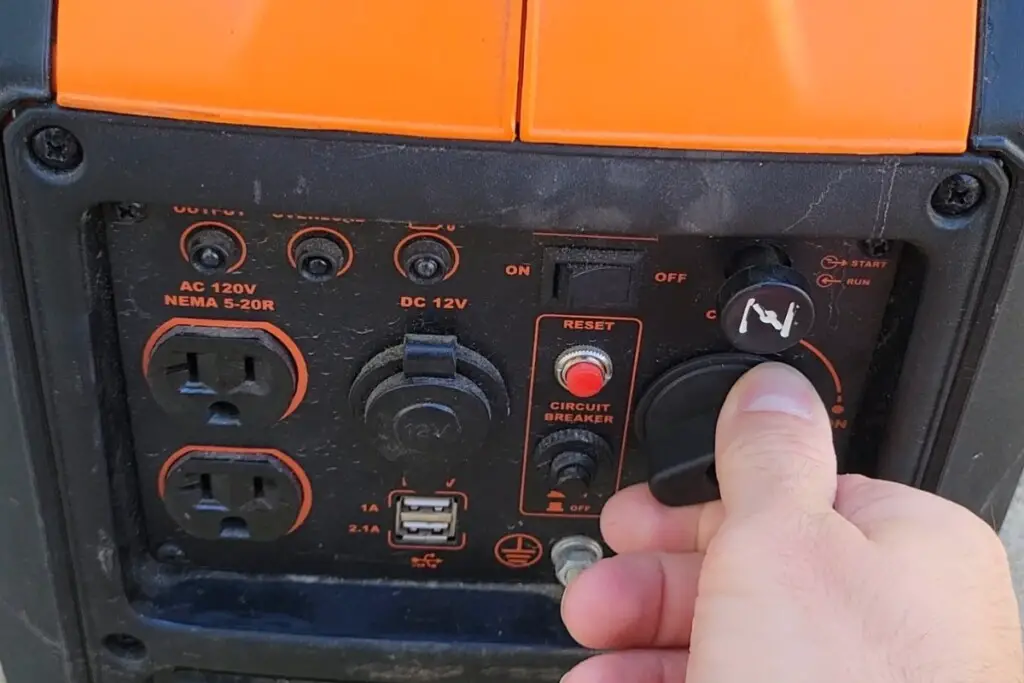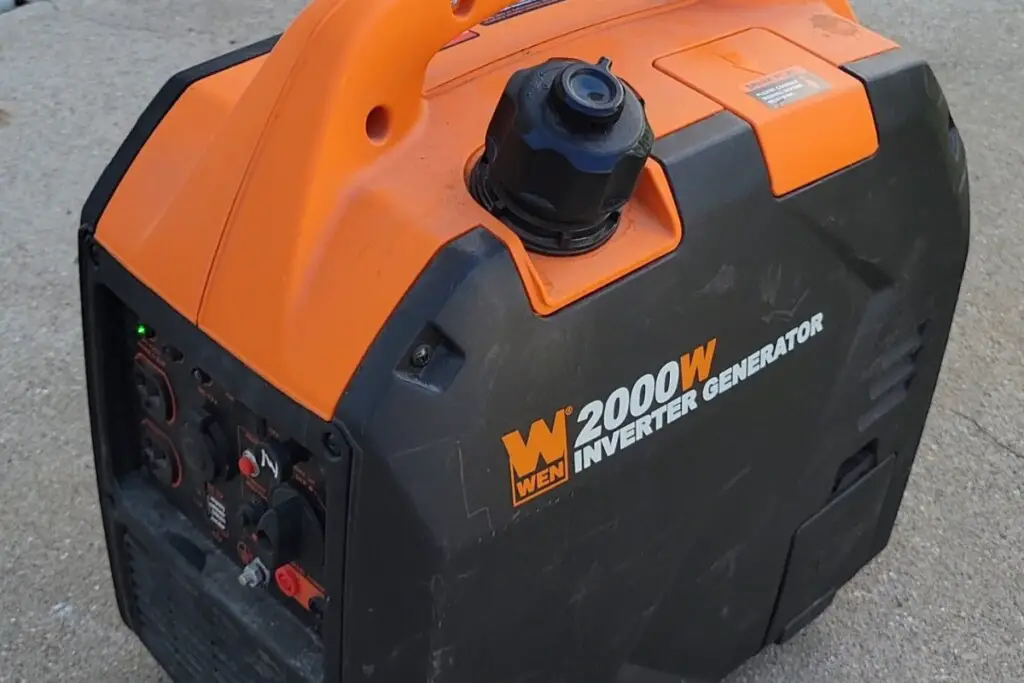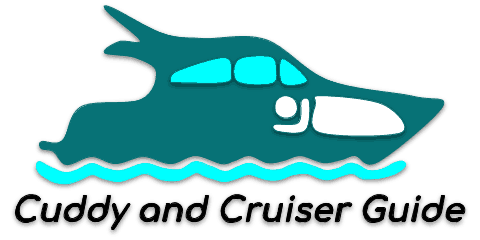Choosing the right generator size for your boat is crucial for ensuring you have the power needed to run your appliances and equipment while also keeping noise and fuel consumption to a minimum. In this article, we will discuss how to calculate your boat’s power requirements, the differences between generators and inverters, various types of generators, and their pros and cons. As a boat owner for 10 years and a cuddy cabin owner for 5, I know how essential it is to find the perfect generator for your needs.
How Many Watts Will I Be Using on My Boat?
To determine the appropriate size of the generator for your boat, you first need to calculate your boat’s total power requirements. Make a list of all the appliances and electronics on your boat, along with their wattage requirements. Keep in mind that the starting wattage for motors (such as those found in refrigerators, freezers, or air conditioners) can be several times higher than the running wattage.
| Appliance | Running Wattage | Additional Starting Watts |
|---|---|---|
| Air Conditioner (5,000-16,000 BTU) | 480-1,560 | 2,000-7,800+ |
| Refrigerator | 540 | 1,250-1,750 |
| Microwave | 1200 | N/A |
| LED TV (small to medium) | 35-75 | N/A |
| Cabin Lights | 24 | N/A |
| Laptop | 60 | N/A |
| Navigation System (GPS + Chart Plotter) | 30 | N/A |
| Fresh Water Pump | 50 | 150 |
| Bilge Pump | 60 | 180 |
How to Properly Size a Generator for Your Boat
Once you have calculated your boat’s total wattage requirements, it is recommended to size up by at least 50% to accommodate spikes in power demand caused by compressors and pumps with larger startup watts. This will help ensure that your generator can handle the load without constantly tripping breakers or wearing out quickly.

Generator vs. Pure Sine Wave Inverter
Inverters convert the DC power from your boat’s batteries into AC power and are compact and quiet but limited in output by the size of your battery bank and the alternator’s ability to keep up with the draw. Inverter-generator systems offer the best of both worlds, allowing you to use the inverter for lower power demands and switch to the generator for higher power requirements.
| Generator | Inverter | |
|---|---|---|
| Pros | Higher power output | Silent operation |
| Can power large appliances | Low power consumption | |
| Can charge battery banks | Can Be used with solar panels | |
| Clean, stable power for electronics | ||
| Cons | Can be noisy | Lower power output |
| Fuel consumption | Limited by battery capacity | |
| Requires regular maintenance | Required larger battery bank |
Generator Types
There are several factors to consider when choosing a generator for your boat, including whether it is portable or an installed marine generator, conventional or inverter, and gas or diesel-powered. The type of generator you choose will depend on your boat’s specific needs and requirements.
Portable vs. Installed:
| Portable Generator (Conventional or Inverter) | Installed Marine Generator |
|---|---|
| Lightweight | More powerful |
| Easy to move | Permanent |
| Lower power output | Requires professional installation |
Conventional vs. Inverter Generators:
| Conventional Generator | Inverter Generator |
|---|---|
| Higher power output | Quieter operation |
| Lower cost per kilowatt | Clean, stable power |
| Noisier | Higher cost per kilowatt |
Gas vs. Diesel:
| Gas | Diesel |
|---|---|
| Readily available | More fuel-efficient |
| Less expensive | Longer-lasting |
| Less fuel-efficient | Less available |
How Do I Power My Boat with a Portable Generator?
You have two primary options for powering the electrical gear and lights onboard: extension cords or a “pig tail” shore power adapter.
Extension Cords: This is the more cumbersome way of powering things but it’s straightforward. You place the generator in a safe location and run extension cords to the thing that you need to plug in. You then take the cord from that device and plug it into the extension cord. This will word for certain things in and on the boat, but not everything, as some things are hardwired like lights.
“Pig Tail” Shore Power Adapter: With this method, you take an adapter (like this, seen on Amazon) that plugs into the 15amp outlet on your generator and plug the other end into the shore power inlet on your boat. Your generator is now running everything onboard as if you were connected to shore power. Of course, you can only power what your generator is rated for, so ration the power accordingly by only turning things on that the generator can handle, and doing so in the order that is best as far as taking into account the starting watts of certain devices.
Of course, regardless of what method you use, it is best to consult with a local marine expert in your area and run through your game plan of how you plan on powering your boat.
Will a Honda EU2200i or EU2000i Inverter Generator Power My Boat’s Air Conditioning?
While Honda makes a fantastic generator and the quality is top notch, you may find it difficult or impossible to successfully power your boat’s air conditioner depending on its size. For more on air conditioning options in boats, you can check out my article here.
The Honda inverter generators, along with many other inverter generators (which tend to be lower in output than their conventional generator counterparts), can easily handle the running watts of many air conditioners.
The issue is with the starting watts, which can be an additional 5-10x what the running watts are. So, a 5,000 BTU air conditioner with 480 running watts may have an additional 2,400-4,800 watts added on top just to turn on. A 2,000 watt inverter generator is not going to be able to handle that.
I have recommended generator options at the end of this article and if you need to power an air conditioning unit, I would highly recommend going with the higher output inverter generator models and then doing very careful research on the max (peak) output of these generators and the power requirements of your particular air conditioner.
Are Marine Generators Air Cooled or Water Cooled?
Marine generators are typically water-cooled. They can use one of three types of cooling systems: raw water, heat exchanger, or keel cooled. Air-cooled generators are less common in marine environments due to the higher cooling efficiency and corrosion resistance offered by water-cooled systems.
Does Saltwater Affect the Water Cooled System of a Marine Generator?
Saltwater can affect the water-cooled system of a marine generator. Saltwater is highly corrosive, and when it circulates through a generator’s cooling system, it can cause corrosion and buildup within the system components. This is especially true for raw water cooling systems, where the saltwater comes into direct contact with the engine’s cooling components.
Heat exchanger systems reduce the risk of corrosion by separating the saltwater from the engine’s closed freshwater cooling system. In these systems, the saltwater only comes into contact with the heat exchanger, which is designed to be more resistant to corrosion. However, regular maintenance is still essential to prevent any issues from saltwater exposure.
Keel cooled systems offer the most protection against saltwater corrosion since they use a completely sealed freshwater cooling system with no direct contact between the saltwater and the generator’s cooling components. Instead, the coolant circulates through a cooling grid located on the bottom of the boat, called a keel cooler.
Saltwater vs. Freshwater Considerations
Selecting a generator that is designed for marine use will help ensure it is suitable for the challenges posed by the corrosive nature of the saltwater environment. Look for generators with corrosion-resistant materials and components, as well as a robust cooling system.
I highly recommend reading forums and reviews for any generator that you plan on purchasing for a boat, especially marine generators!
Are Generators Frowned Upon (Bad Boating Etiquette)
Using a generator on the water or while at a dock can be a source of annoyance for fellow boaters due to the noise pollution it generates. Sound travels more efficiently on water, causing the noise from generators to carry farther and be more audible to those around you. This can disrupt the peaceful atmosphere that many boaters seek when out on the water.
To minimize noise pollution and maintain good relations with your fellow boaters, it is advisable to use shore power whenever possible when you are docked. Shore power provides a quiet, stable source of electricity and eliminates the need to run a noisy generator, making it a more considerate choice for powering your boat when in a marina or docked alongside other boats.
If shore power is not available, consider using your boat’s battery power for your electrical needs, especially for shorter periods or when you only require low power consumption. This alternative is not only quieter, but it also conserves fuel and reduces the wear and tear on your generator.
Investing in a quiet, high-quality inverter generator or adding soundproofing measures, such as sound enclosures or insulation, can also help reduce noise levels if you must use a generator while on the water or at a dock. However, using shore power or relying on your boat’s battery system whenever possible remains the best way to be a considerate boater and maintain a peaceful environment for everyone to enjoy.
Generator Safety
Generator safety is critical, particularly when it comes to ventilation. Ensure your generator is installed in a well-ventilated area, especially if it is located near sleeping quarters. Carbon monoxide poisoning is a serious risk, so proper ventilation is crucial. Always have a carbon monoxide detector in the sleeping quarters!
Recommended Spare Parts and Tools for your Generator
Keeping essential spare parts and tools on hand will help ensure that you can perform routine maintenance and address any issues that may arise with your generator. Some recommended items to have on hand include spark plugs, filters, oil, spare gasoline, screwdrivers, and a ratchet and socket set.

Recommended Generators
If you’re not looking for a permanently installed marine generator, then for a portable option the inverter generators are typically quieter than conventional generators, making them a popular choice for boat owners who want to minimize noise pollution on the water.
As a boat owner, I prefer inverter generators because they are quieter, and noise travels far on the water. I’ve used and repaired all 3 generator brands below and trust them all. Honda would be the best as far as quality, but the watts for their inverter generators max out at 2,200. WEN offers a wider range, as does Champion. Some recommended inverter generators include:
- Honda EU2200i
- WEN 56380i Super Quiet 3800-Watt Inverter Generator
- WEN 56235i Super Quiet 2350-Watt Portable Inverter Generator
- Champion Power Equipment 200986 4500-Watt Portable Inverter Generator
Be sure to research and compare various inverter generators to find the best one that meets your boat’s power requirements and preferences.
Final Takeaways
By taking the time to carefully consider your boat’s power needs and the various options available, you can find the perfect generator to keep your boat running smoothly and efficiently.
Remember to factor in not only the power requirements of your appliances and electronics but also the benefits and drawbacks of different types of generators, inverters, and fuel sources. With the right generator in place, you can enjoy your time on the water without worrying about power issues or disruptions.
Happy boating!
